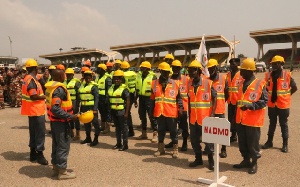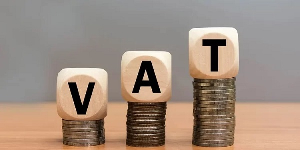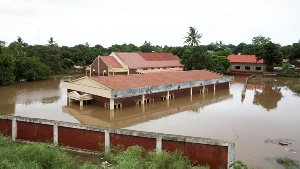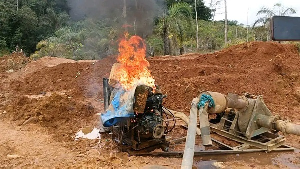The National Disaster Management Organisation (NADMO) has called on individuals and organisations to include smoke detectors, water hydrants and fire extinguishers in the construction of their houses and commercial buildings so as to help reduce disasters.
“Let us understand that we need to survive and the only way is to strengthen our resilience capabilities and reduce the impact of disasters to the barest minimum,” NADMO said in a statement to mark International Day for Disaster Risk Reduction held on Saturday, 13 October 2018.
As part of the celebration, NADMO is organising two sensitisation fora in Jasikan in the Volta Region and Asamankesi in the Eastern Region to create awareness in disaster risk reduction.
STATEMENT MADE BY NADMO ON THE CELEBRATION OF THE INTERNATIONAL DAY FOR DISASTER RISK REDUCTION HELD ON SATURDAY THE 13TH OF OCTOBER, 2018
This year’s theme focusing on Target C, which is to “Reduce Disaster Economic Loss in relation to the Global Gross Domestic Product (GDP) by 2030” of the Sendai Framework is not by accident. The dictates of the time, the enormity and frightening nature of losses to disasters require that special attention is given in this direction to reverse the trend. For example, a whopping 300 billion USD was the cost of disaster losses in 2017. Sadly, in Africa where poverty abounds, and where resources are needed to address the problems of abject poverty, 500m USD was lost to disasters in 2017.
Ghana has had its fair share of disasters this year, which has left in its wake a lot of havoc that affected people, houses, farms, and animals, which ultimately has a telling effect on the economy. One of such disasters worth noting is the flood from torrential rains coupled with the spillage of the Bagre Dam, which affected a lot of communities in the northern part of the country. This has serious implications for food production and consequently leads to huge economic loss.
This is unacceptable and the earlier the problem was faced head-on, the better. Target C, therefore, requires the world to “Reduce Disaster Economic Loss in relation to the Global Gross Domestic Product (GDP) by 2030”.
Ladies and Gentlemen, disasters visit serious economic consequences which can shake the fabric of our national economy. Loss of lives to disasters has a serious effect on national productive capabilities as manpower and human resource are lost in the process. Losses in the agricultural and industrial sectors threaten food security, trade and employment. Losses due to breakdown of critical infrastructure which are drivers of the economy weaken the economic system.
A combination of all these leads to poor performance of the banking system which can set in motion the wheels of economic recession.
Ladies and gentlemen, the increased frequency and intensity of disasters that are being witnessed in recent times is enough to signal that we all need to sit up.
What we need as a nation is risk-informed planning and decision-making. Improved public investment planning, prioritised projects that require risk analysis, policy re-engineering are also some of the measures required to forestall such a situation from befalling us.
Ladies and gentlemen, disaster-risk reduction has now seen a paradigm shift from a mere disaster prevention and mitigation mechanism to a pivotal socio-economic development solution.
For example, our national zeal in the implementation of the Sustainable Development Goals will be meaningful when grounded on the Sendai Framework, for every aspect of the implementation of the SDG’s should be underpinned by risk reduction measures for true sustainability.
Ladies and gentlemen, the whole world is on a crossroad in view of the shocks of disasters we are encountering as exacerbated by climate change.
The potential, therefore, for disaster losses to increase is high.
We call on individuals and organisations to consider including smoke detectors, water hydrants and fire extinguishers in the construction of private houses and commercial buildings to help reduce incidents of disaster.
Let us understand that we need to survive and the only way is to strengthen our resilience capabilities and reduce the impact of disasters to the barest minimum.
To mark the day NADMO is organising two sensitisation forums in Jasikan in the Volta Region and Asamankesi in the Eastern Region to create awareness in Disaster Risk Reduction.
As a nation, the watchword is invest, invest, invest in disaster risk reduction.
Thank you
Signed:
Hon. Eric Nana Agyemang-Prempeh
Director-General, NADMO.
General News of Saturday, 13 October 2018
Source: classfmonline.com
Too many disasters 'unacceptable' – NADMO
Entertainment












